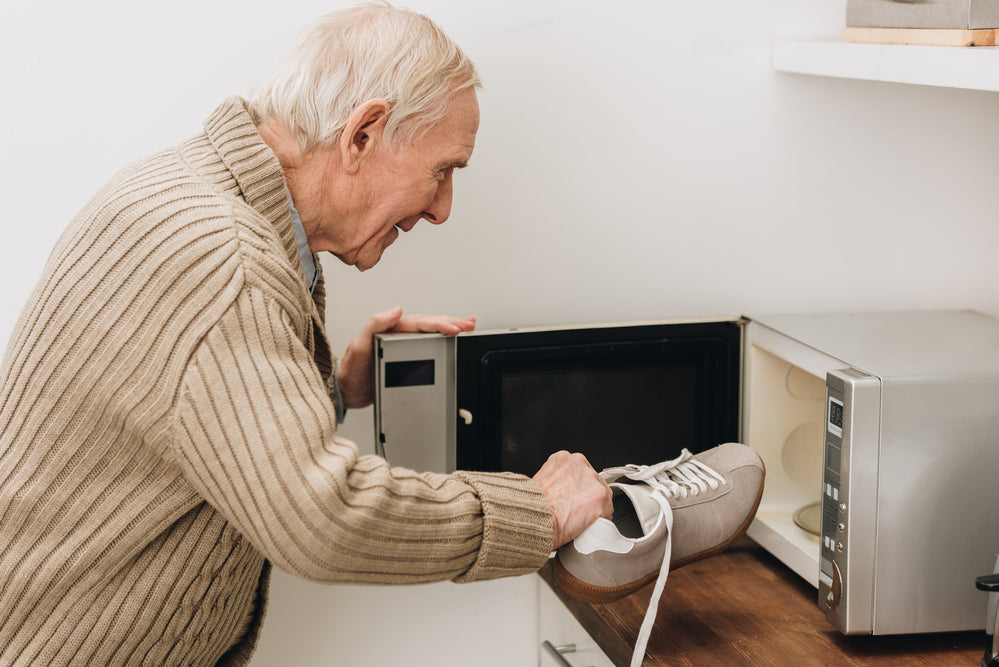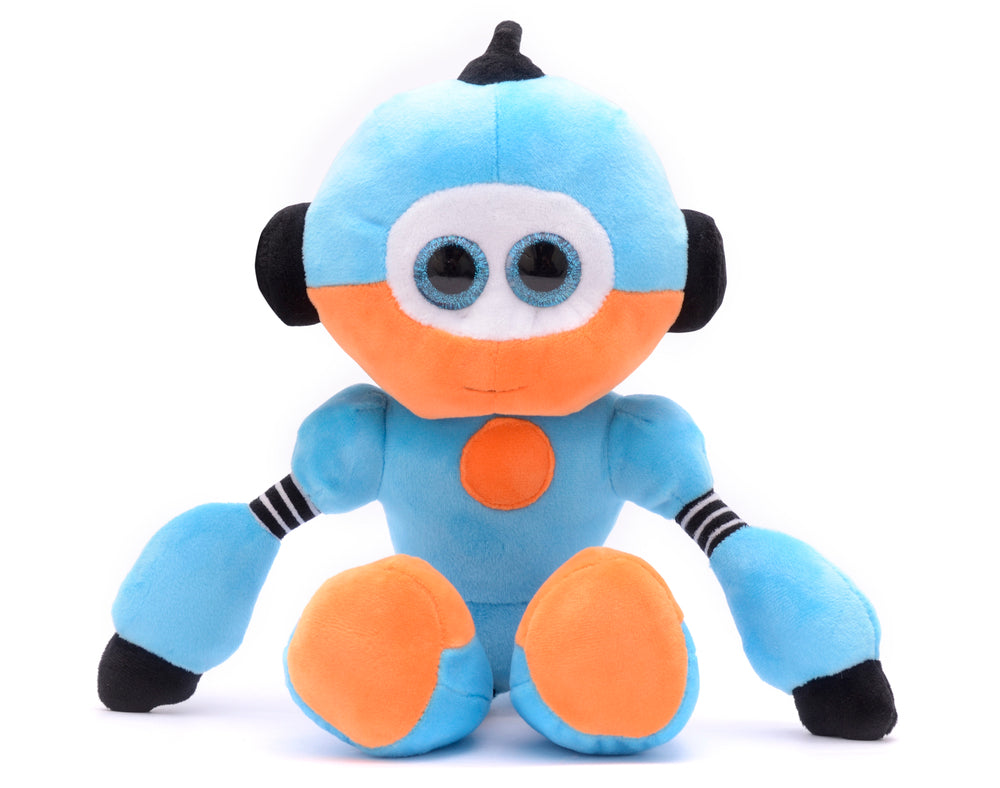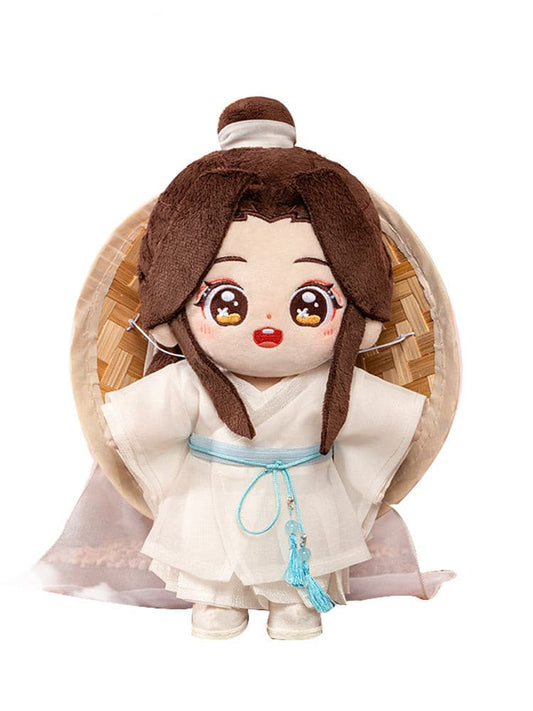Did you know that an estimated 55 million people worldwide live with dementia? This number is expected to increase by 23 million by 2030 and double by 2050.
There is currently no cure for dementia. However, this doesn't mean there are no ways of assisting people with dementia to live more comfortably.
The medical and academic communities are busy developing disease-modifying therapies and anti-dementia medicines.
Central to these therapies is ensuring that people with dementia are happy, engaged, and feel cared for. Even though live animals have played a significant role in achieving this over the years, medical studies have also looked at the role of stuffed animals in helping seniors with dementia.
This article focuses on research into the role of stuffed animals in improving the lives of older adults living with dementia.
We start by defining dementia. We also answer some basic questions about how you can help mentally stimulate someone with dementia. The piece also samples some conclusions from medical studies focusing on stuffed animals and dementia. Finally, we provide tips on selecting a stuffed animal for someone with dementia.
What is Dementia?
According to the Centers for Disease Control and Prevention (CDC), dementia is not a specific disease but a general term denoting weakened ability to think, remember or make decisions to the extent that it negatively affects day-to-day life.
Dementia disproportionately affects older adults, leading many people to perceive it as a normal aging process. However, the CDC reveals this is not the case as "many older adults live their entire lives without developing dementia."
Dementia Risk Factors
The CDC lists some dementia risk factors, including:
- Age: Dementia mostly affects people aged 65 and older.
- Family history: Individuals whose parents or siblings have dementia are at a higher risk of developing the condition.
- Race: African Americans and Hispanics have a higher likelihood of having dementia than their white counterparts.
- Traumatic brain injury: Brain injuries increase the risk of dementia, mainly if they happen repeatedly or are severe.
- Poor health: If not properly treated, high blood pressure and high cholesterol, together with smoking and a sedentary lifestyle, increase the risk of dementia.
Dementia Signs and Symptoms

The signs and symptoms of dementia differ substantially between one individual and another. However, the Alzheimer's Association presents some signs and symptoms, including problems with:
- Remembering things that have just happened.
- Keeping track of items like keys or wallets.
- Paying bills.
- Planning and preparing meals.
- Remembering appointments.
- Finding your way around familiar places.
According to the Alzheimer's Association, these signs start slowly and worsen over time. The organization advises, "If you or someone you know is experiencing memory difficulties or other changes in thinking skills, don't ignore them. See a doctor soon to determine the cause."
Do People With Dementia Get Bored?
Dementia can make it challenging for a person to control their emotions to the extent that the individual becomes a different person altogether. Hope Hospice suggests that this could lead to people related to individuals with dementia pulling away over time, leading to the onset of boredom.
Hope Hospice proposes that the objectionable behaviors of the older adult with dementia "…are a direct result of the person's unchecked needs surrounding boredom and loneliness, which must be addressed in order to improve their quality of life."
This means that instead of taking the easy route and avoiding the individual with dementia, the best way of dealing with the situation is to consider ways of mentally stimulating the affected person.
Stuffed animals have been noted to play a profound role in assisting people with dementia to keep themselves engaged.
A Personal Story
Lynn Marie Witt, a healthcare professional, writes for AlzheimersDisease.net and tells the personal story of how her mother benefited from using stuffed animals.
She says that even though her mother was starting to forget what she was wearing the previous day or even what she had for breakfast, she still remembered the toy aisle where "One hundred percent of the time, a new stuffed toy would end up in the cart."
From her encounter with her mother, Witt says she learned a few things about the benefits of using stuffed animals to help people with dementia:
- Calming effect: Just like real pets, stuffed animals provide a senior with dementia with an opportunity to hug, hold, pet, and touch. The sensory experience from such interaction is calming.
- Provides a chance to nurture: Stuffed animals may provide the individual with an opportunity to nurture, averting boredom and helping gain a feeling of self-worth.
- Provides a door to the person's world: Witt indicates that she realized that it was easier to gain her mom's attention when she talked about something connected to her world. In this case, the stuffed animals provided that connection.
Conclusions from Medical Studies
It's easy to dismiss stories like Witt's because they are not based on scientific evidence. So, we took some time to find out what studies say about how stuffed animals can help seniors with dementia.
Robotic Therapy

An area that has attracted growing attention among scholars and practitioners researching the effect of stuffed animals on people living with dementia is robotic therapy.
The health information website, VeryWellHealth.com reports about PARO, a Japanese-developed robotic baby harp seal.
The seal was the focus of a study by researchers in Japan. They concluded, "… PARO could serve as an effective icebreaker and help nursing home staff better help older people with illness."
The same source reports about a Dutch study that scrutinized the use of PARO among older adults with dementia. The study confirmed that PARO could be effective "… as a user-centered intervention to increase the quality of care and quality of life among elderly people."
Toy Pets Improve Mood and Cognition
The Fisher Center for Alzheimer's Research Foundation cites a study from Florida Atlantic University, which concluded that furry, interactive robotic pets boosted cognition and improved the mood of individuals with Alzheimer's disease.
The same source quotes Bryanna Streit LaRose, the study's lead author. LaRose says that the robotic therapeutic pets "offer a way to address symptoms naturally and without the use of pharmacological treatments, which may or may not be effective and have possible detrimental side effects."
Benefits Without the Work Involved With Real Pets
A study published by the Journal of Alzheimer's Disease concludes that robotic pets provide the same positive benefits as traditional pets. However, the researchers note that stuffed animals do not come with the negative aspects associated with traditional pets, such as being unpredictable and needing attention.
The same study concluded that patients treated using PARO showed lower anxiety and stress levels. This led to a reduction in the use of pain and psychoactive medication among the participating seniors.
Choosing the Best Stuffed Animal for a Senior with Dementia
Now that there is some evidence that stuffed animals can help seniors with dementia, you may want to try one. However, it's vital to ensure you get the right stuffed animal for the right person.
Witt states that even though she has many years of practice as a healthcare professional, it was only after her experience with her mom that she discovered that "Stuffed animals are not a one size fits all solution for everyone with Alzheimer's dementia."
She recommends that stuffed toys are most useful for individuals in the mid-to-late stages of the disease.
Toys Should Be Comforting and Meaningful
Ray Burow of AlzheimersNewsToday.com acknowledges the view that gifts like stuffed animals for seniors with dementia should be comforting and meaningful in everyday life.
Burow adds that it's vital to remember that the preferences of people with dementia may change. This implies that something they may have liked before may no longer be appropriate. He suggests that you should avoid getting gifts that may remind the seniors of what they have lost.
Combine Stuffed Animals with Other Toys

To effectively use stuffed animals in assisting seniors with dementia, you need to combine them with other toys so that the individual has a wide-ranging experience.
Countrywidehealthcare.co.uk suggests that when selecting toys for people with dementia, you must ensure that these toys facilitate meaningful and enjoyable activities.
The same source recommends that since older adults with dementia tend to have restless hands, holding a toy – such as a stuffed animal – can help keep their hands meaningfully occupied for extended periods.
Countrywidehealthcare.co.uk also advises, "When providing games and toys to those [you care for], focus on what each individual can do, rather than what they can't."
Stuffed Animals Are Only an Aid
While both personal stories and scientific conclusions support the idea that stuffed animals could have a valuable role in assisting older adults with dementia, it's vital to realize they don't replace real interaction.
According to VeryWellHealth.com, the Dutch researchers cited above "…were careful to stress that PARO is merely an aid and not a replacement for actual care provided by human caregivers."




